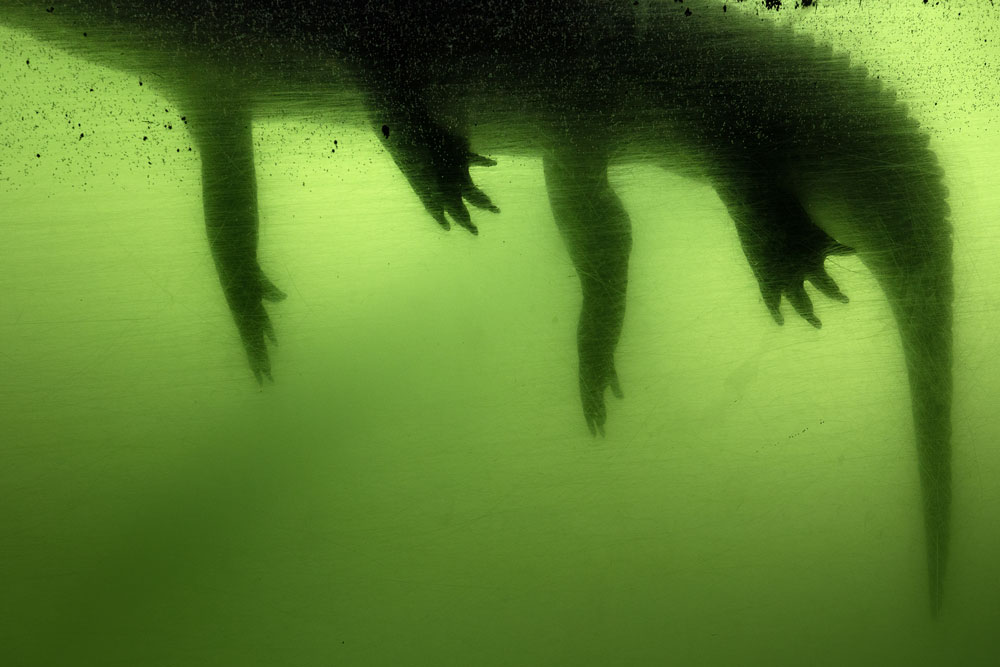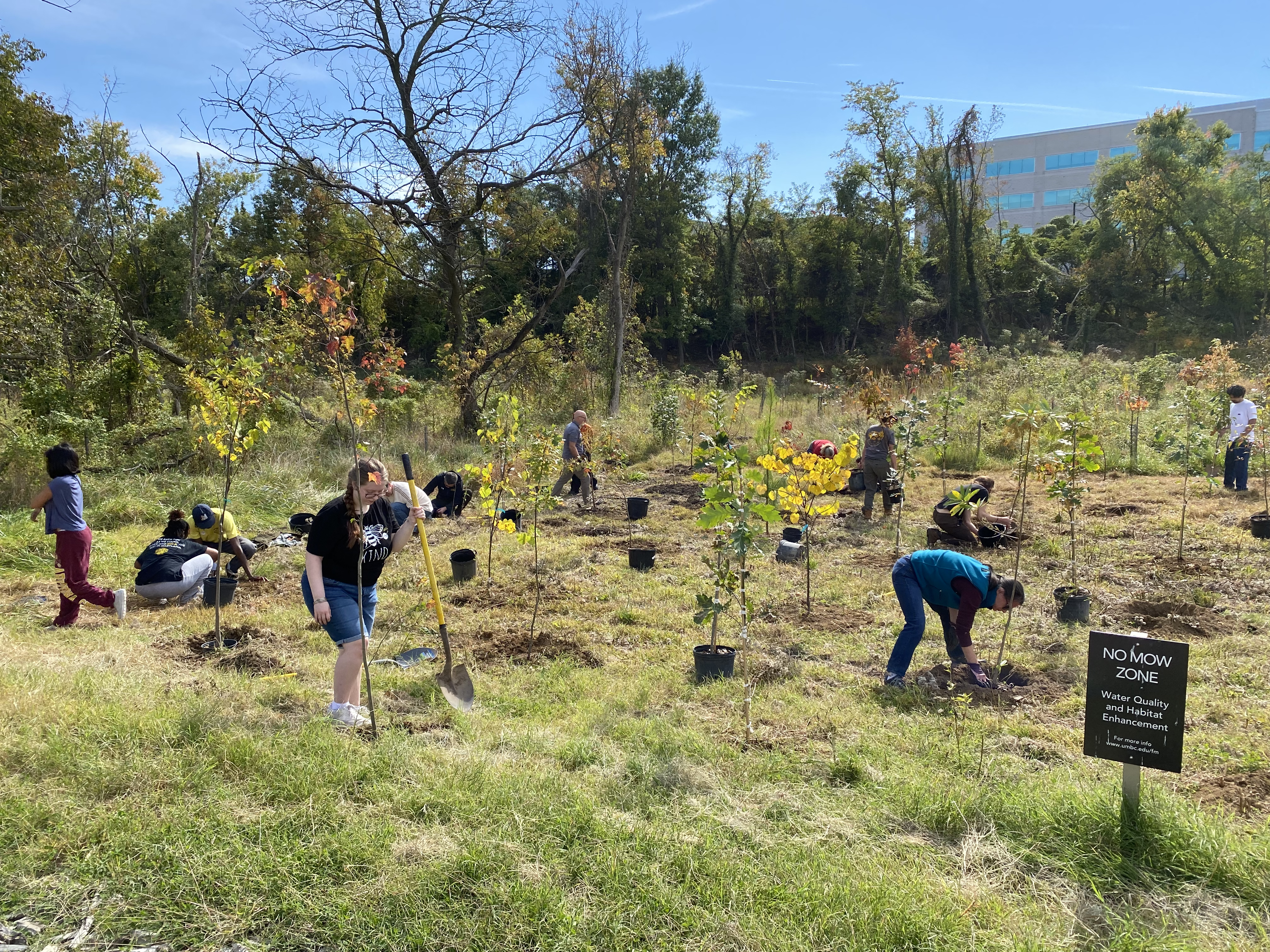While Earth Day may be a one-day affair, our everyday actions affect the Earth 365 days of the year. This April, UMBC is celebrating Earth Month, allowing the community to dedicate time to reflect more deeply on the environmental challenges we are facing and also celebrate the many gifts our world has to offer. In partnership with the Environmental Protection Agency (EPA) and the United States Geological Survey (USGS), UMBC is hosting a lineup of free, exciting, Earth Day events happening all month! You don’t even need to leave campus to join in on the fun all while learning about how we can all do our part to take care of our planet.
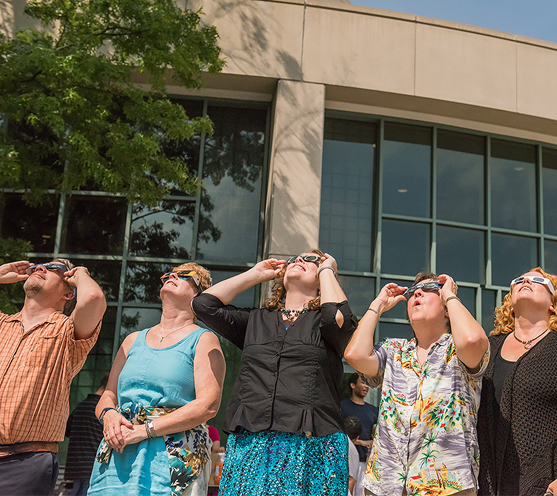
1. Watch the Solar Eclipse (with proper glasses)
Head over to the Quad, on April 8 from 2 to 4 p.m., and join your fellow earthlings from the Astronomy Club for a watch party of the solar eclipse! The eclipse will trace a narrow path of darkness across North America where the moon will pass between the Sun and the Earth, creating a partial eclipse. Watch as more than 88 percent of the Sun will be obstructed from view at UMBC. (Left, a group watches the 2017 eclipse in front of the AOK Library.)
2. Go see the play “SLIME”
As part of the Plays for Our Planet initiative, the Department of Theatre is producing Byrony Lavery’s “SLIME,” directed by Nigel Semaj. The play is about seven graduate students who appear at the Third Annual Slime Crisis Conference, fighting to save the Earth from a toxic slime that is threatening all animal life.
Performances will take place from April 4 to 14, and on April 14, there will be a free matinee for students, followed by a post-show actor talk-back, featuring, Dawn Biehler of UMBC’s Department of Geography and Environmental Systems. You don’t want to miss this opportunity to educate yourself on climate change in an engaging and entertaining way.
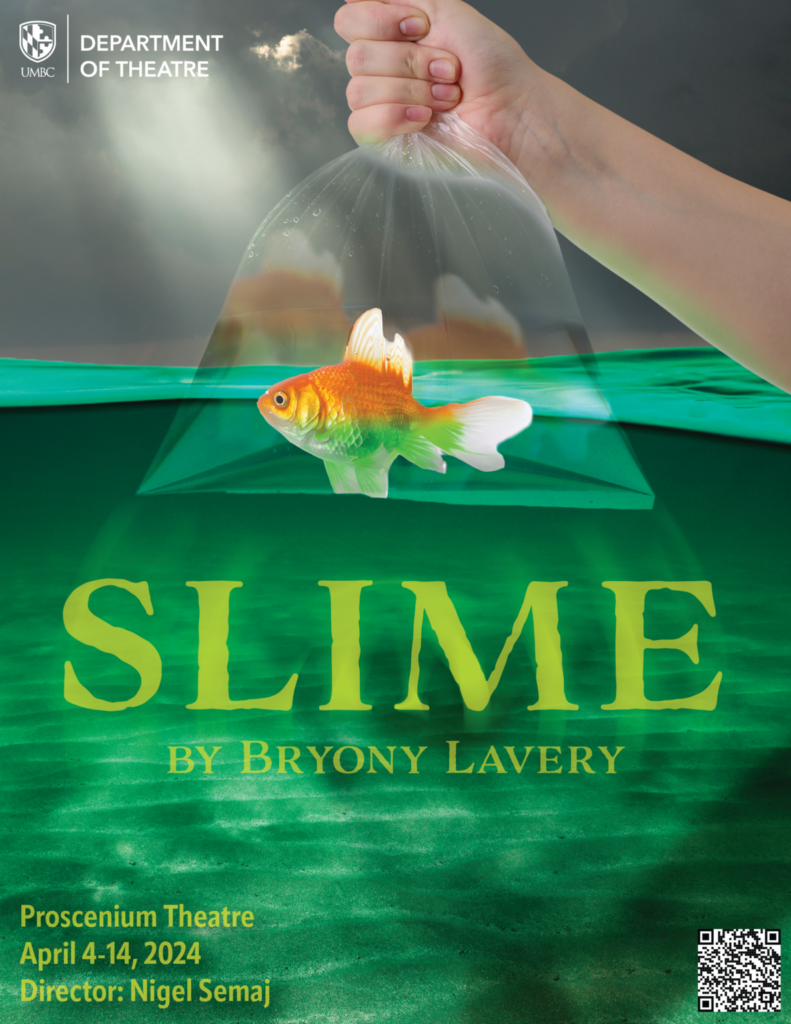
3. Run the Earth Day 3K
Enjoy the spring weather and head over to RAC for the annual free Earth Day 3K Run on April 17. Don’t worry if you’re not a competitive runner, walking is encouraged as well. If you’re up for the challenge, you can sign up here, or via walk-up registration the day of from 11 a.m.to noon. Prizes will be awarded to the top finishers, and the first 100 completed racers will receive Earth Day T-Shirts.
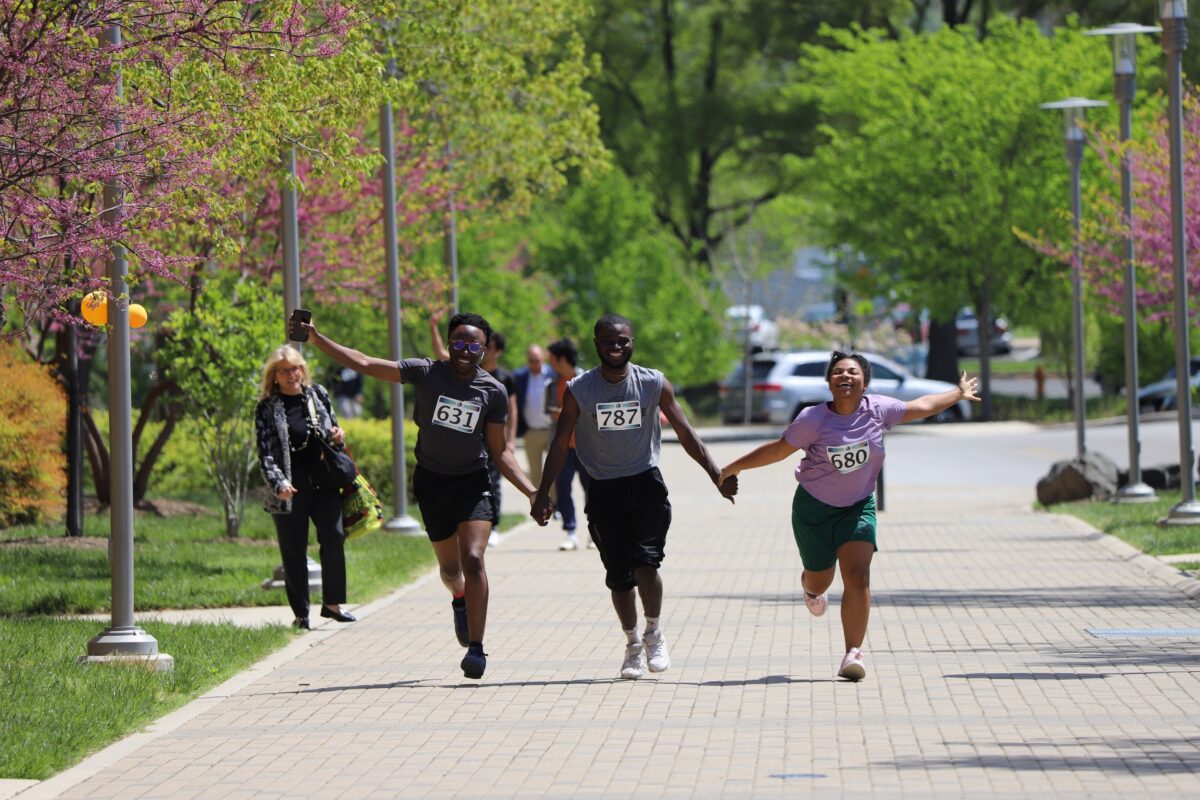
The event begins at 12:15 p.m. and refreshments will be provided post-race. All participants will have a chance to connect with the community and become more aware of earth sciences and the environment. UMBC students, faculty, as well as anyone in the Baltimore community is encouraged to participate!
4. Bring global change down to Earth
For most of us, managing greenhouse gas emissions and watching distant islands flood or glaciers melt are far beyond our reach. However, the pervasive reach of an environmental reckoning means we have local issues, with much for all of us to work on. This panel on April 22 will bring together scholars from public policy, geography and environmental systems, and beyond to discuss multiple ways to understand climate work.
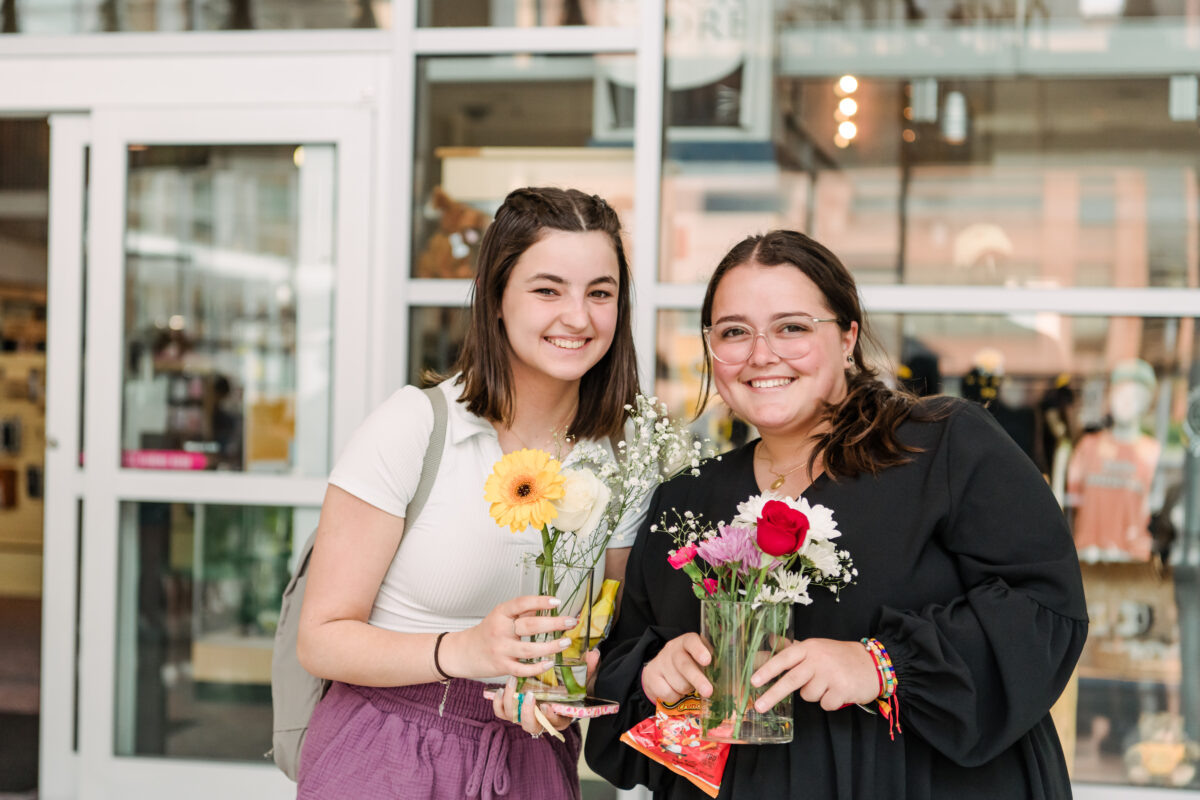
5. Check out research from the UMBC community
There is so much groundbreaking research happening at UMBC conducted by students, faculty, staff, and community members, and you can learn all about it at Earth Day Community Day on the Quad on April 22. There will be two sessions, one starts at 10 a.m. and another at 1 p.m. Take this time to enrich your understanding of the research being carried out at UMBC and how it has had a significant impact on the Baltimore community and beyond.
6. Attend an Earth Day panel
After checking out Community Day on the Quad, be sure to catch the panel, Climate Change, Science Communication, and the Arts. Artist Anastasia Samoylova (Gator, 2017, left) will be joining scientists and media historians for a panel discussion on April 22.
Along with Anastasia Samoylova—the photographer behind the vivid pictures in the exhibit “Floodzone” which takes a look at how climate change has affected the southern U.S.—the panelists will include, Autumn Powell, a UMBC graduate student in geography and environmental systems, Lavar Thomas, a special assistant within the EPA’s administrator’s office, and Tracy Tinga, assistant professor in media and communication studies. This event will be a discussion of how to use of how to use alternate forms of communication, including art, to describe climate change findings to a general audience. The event will take place at the AOK Library Gallery at 5 p.m.
